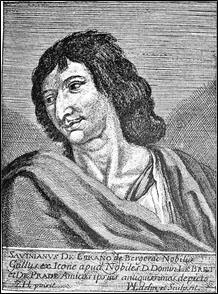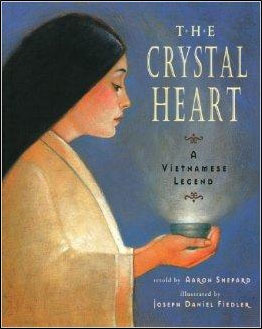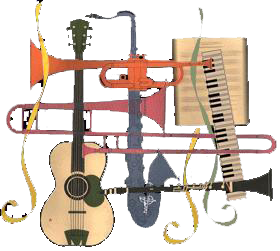The Story of Truong Chi
About unrequited love, death by ridicule, Cyrano de Bergerac, Van Cao
and The Beauty and the Beast
Cyrano de Bergerac (1619-1655) was a French satirist and dramatist. His physical liability, an unusually large nose, made him become a legend. Edmond Rostand (1868-1918), another French dramatist, fictionalized de
 |
| Cyrano de Bergerac |
Bergerac’s life in the play bearing his name. The historical figure became a brilliant but shy cadet, who believed his ugliness denied him “the dream of being loved by even an ugly woman”, and who used his talents to help his handsome friend Christian conquer his own secret love, the beautiful Roxane. Roxane would not be able to recognize Cyrano’s love and talent until before his death (by accident).
Such “pangs of despised love” can be found in Vietnamese folklore and literature, if only at a more tragic level. The story of Truong Chi probably predates the French legend. Unrequited love reminds us of Cyrano de Bergerac, and its tragic but beautiful ending distinguishes it from the optimism of the Western theme of the Beauty and the Beast. In the following story by Bach Lan, Truong Chi is described as having a “plain face and ragged clothes”, but other traditional versions of the legend are much less merciful, and describe him as unusually “ugly”, which reminds us of Rostand’s Cyrano de Bergerac and Victor Hugo’s Quasimodo in Notre Dame de Paris.
Truong Chi’s story has inspired several Vietnamese songwriters. Pham Duy (1921-2013), arguably the most prolific and well known romantic songwriter of South Vietnam, wrote “Khối tình Trương Chi “ after World War II (before 1950):
“Đêm năm xưa khi cung đàn lên tơ,
Hoa lá quên giờ tàn,
Mây trắng bay tìm đàn,
Hồn người thổn thức trong phòng loan…”
Van Cao (1923-1995) reportedly empathized with the character and saw himself as a physically unattractive but talented musician. He stayed in North Vietnam after the country’s division in 1954, and had much less opportunity for artistic creativity after his early masterpieces such as “Truong Chi” (1943).
Một chiều xưa trăng nước chưa thành thơ
Trầm trầm không gian mới rung thành tơ
Vương vất heo may hoa yến mong chờ
Ôi, tiếng cầm ca thu tới bao giờ.
Lòng chiều bơ vơ lúc thu vừa sang,
Chập chùng đêm khuya thức ai phòng loan
Một cánh chim rơi trong khúc nhạc vàng
Đây đó từng song the hé đợi đàn. ..
Anh Trương Chi, tiếng hát vọng ngàn xưa còn rung,
Anh thương nhớ,
Oán trách cuộc từ ly não nùng.
Đò trăng cắm giữa sông vắng
Gió đưa câu ca về đâu?
Nhìn xuống đáy nước sông sâu
Thuyền anh đã chìm đâu! …
(trích lời trong bài Trương Chi của Nhạc sĩ Văn Cao)
Once upon a time, one evening, when moon and river weren't yet poetry
The silence in the air then started to vibrate into silk fibers
In the breeze flowers and swallows wandered, waiting,
Oh, autumn music and songs to come took forever.
Early fall, in solitude, late at night,
In her gynaeceum, still awake under the vacillating light,
A bird descended with the golden music,
The bamboo curtain strands spread, waiting for the sounds.
Truong Chi, your voice still resonates from eternity
You are still longing for her,
Resenting that sad separation.
The boat anchored in the deserted moon river
Where does the wind bring your songs?
Looking into the river’s deep waters
Your boat is nowhere to be found!...
(Translated by HVH
From the song Truong Chi by Van Cao)
The Story of Truong Chi and My Nuong
Once upon a time, there lived a beautiful young lady, My Nuong, beloved daughter of a great and wealthy mandarin. She seemed to have everything in life to be happy.
Yet the beautiful My Nuong was not happy, for she was lovesick. Day and night she dreamt of the charming voice of a mysterious stranger who used to row his craft along the river, down there, beyond the garden, singing wonderful songs. He sang his love for living, his love for nature and mankind, and whenever he expressed his thanks to Heaven for all these blessings his voice was so enchanting and ethereal that no other human voice could match it.
"Oh! That the mysterious stranger were here", sighed the young lady," then I should be able to see his handsome face and his manly manners-for he must be a noble prince and a learned scholar. That is the only thing in the world that I am longing for!"
Then she grew thinner and thinner and became seriously ill. Doctors were called for, but the more medicine she took, the weaker she became. Then the youngest and cleverest of the maids said:” Our lady became thoughtful and sad since the stranger came and sang wonderful songs on the river yonder.”
Then the mandarin said: “Let the stranger be brought here, and let him marry my beloved daughter, if such is her wish."
Then servants went to fetch the stranger, a very poor fisherman called Truong Chi who lived in a shabby hut on the edge of the city. The very moment their eyes met, he fell desperately in love with her.
But Mi Nuong, seeing his plain face and ragged clothes, recalled the picture of a charming prince she had imagined of him, and burst out laughing. And with that laugh, her love sickness was cured forever.
Truong Chi grew very sad and melancholic when he was taken back to his hut. He sighed:" It was so pleasant when I was free and happy, singing and enjoying life. Now it is all past. I shall carry a sweet remembrance of my first and last meeting with her in my grave, when I die."
One morning, people found him dead in his miserable hut.
Years passed by, and one day, they dug his grave to remove his ashes to another place. His heart had been crystallized into a magnificent gem, and knowing his sad love for Mi Nuong, they offered it to her father. It was carved into a lovely teacup, and whenever tea was poured into it, the image of Truong Chi appeared in the amber liquid. When Mi Nuong saw the sad face of Truong Chi, a tear of remorse rolled down her cheeks and fell into the cup, which suddenly vanished.
It was thought that even a tear from his beloved was sufficient to calm forever the restless spirit of Truong Chi, for now that the "debt of love" was paid, the "crystal of love" could at last disappear.
(Adapted and abridged from Vietnamese Legends by L. T. Bach Lan.
Note: “The Crystal Heart”, an award winning English version of the Truong Chi story, by Aaron Shepard, adapted from Bach Lan and Pham Duy Khiem, can be found at:
http://www.aaronshep.com/stories/050.html)

Hien V. Ho
2-09-2014















